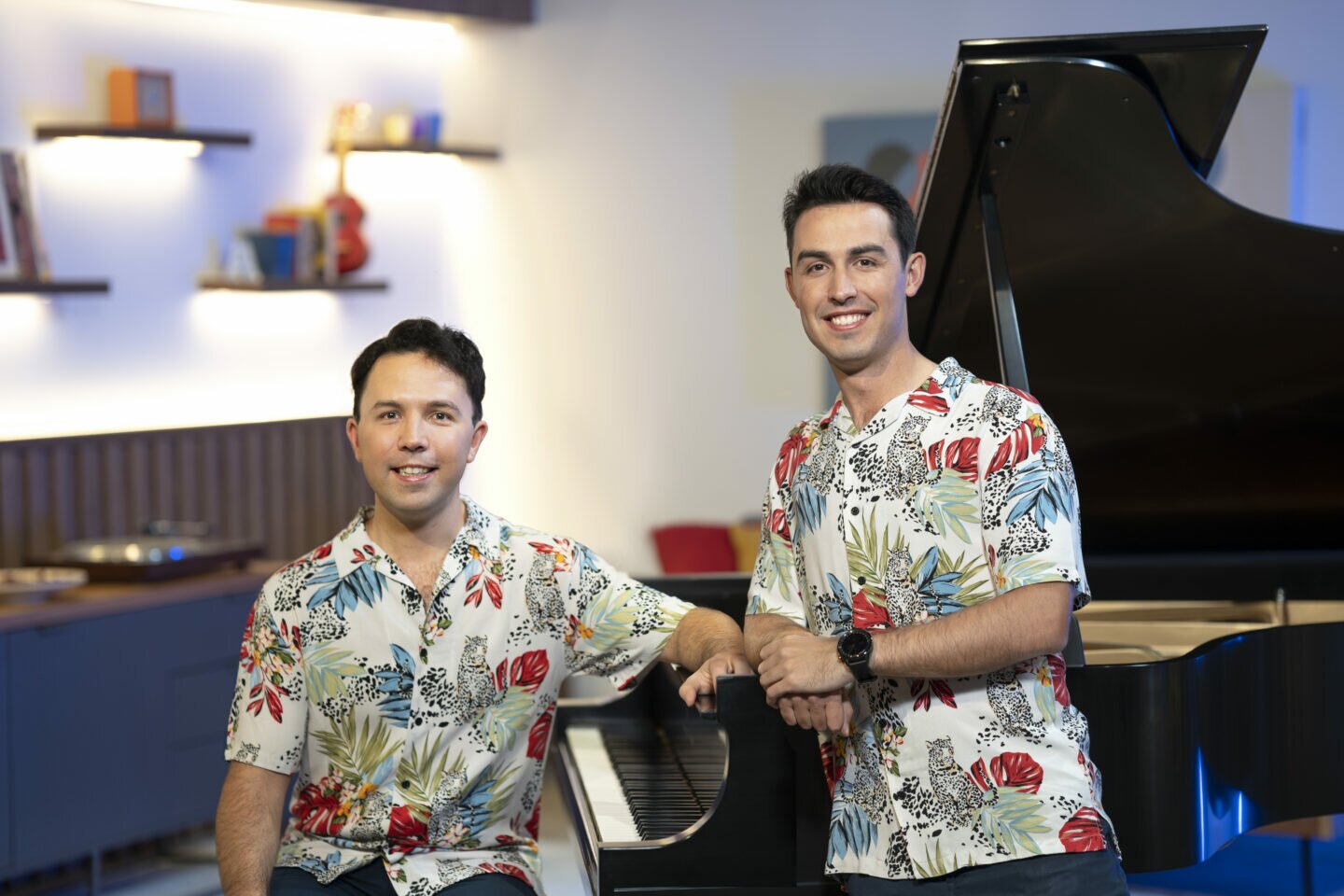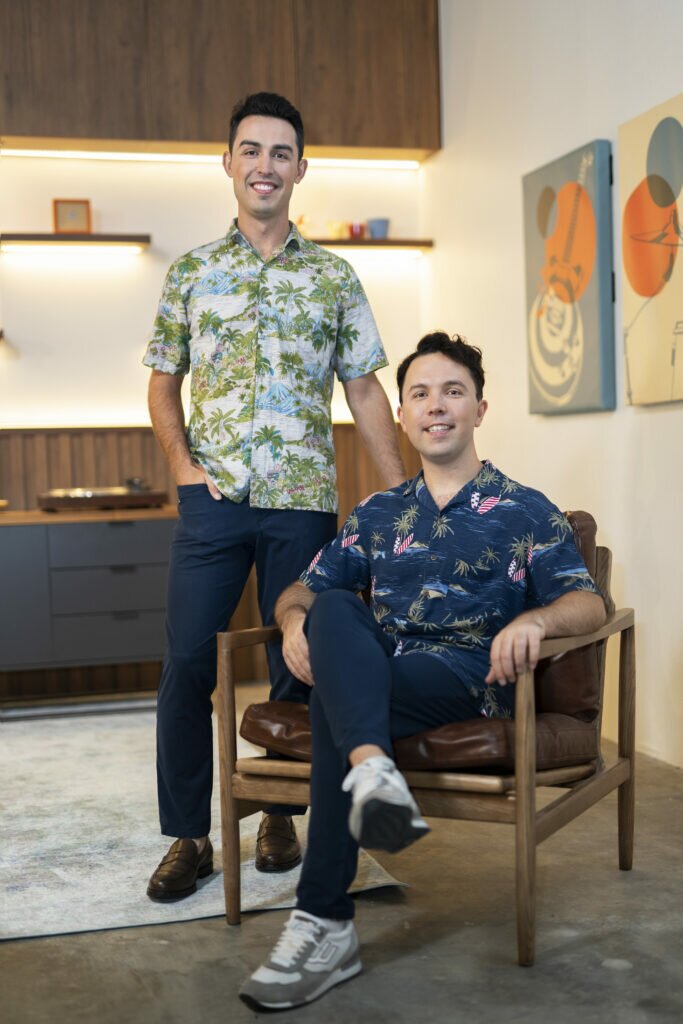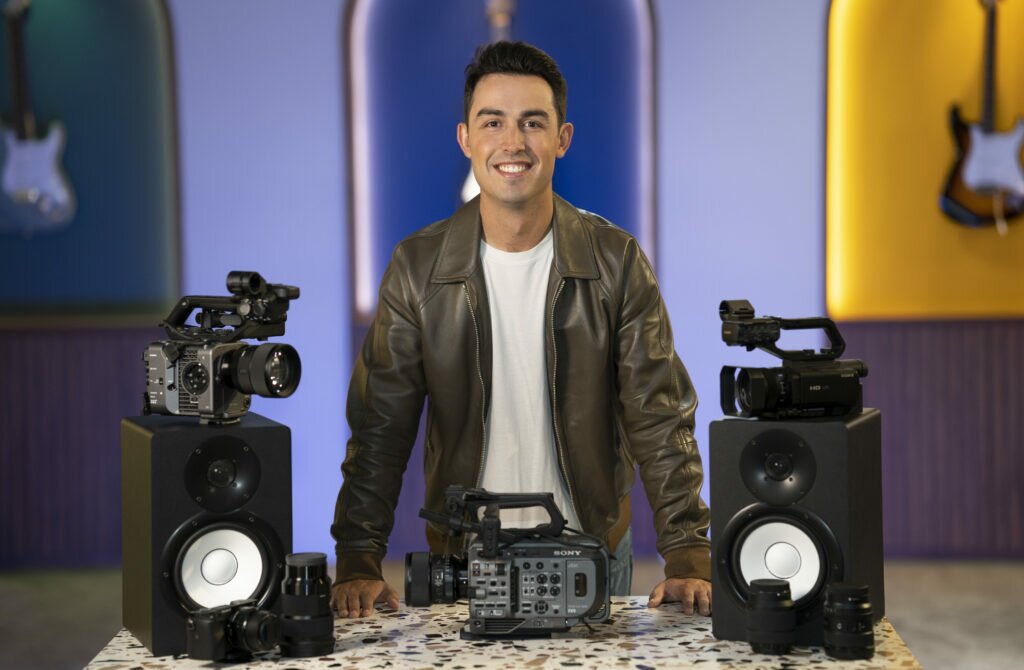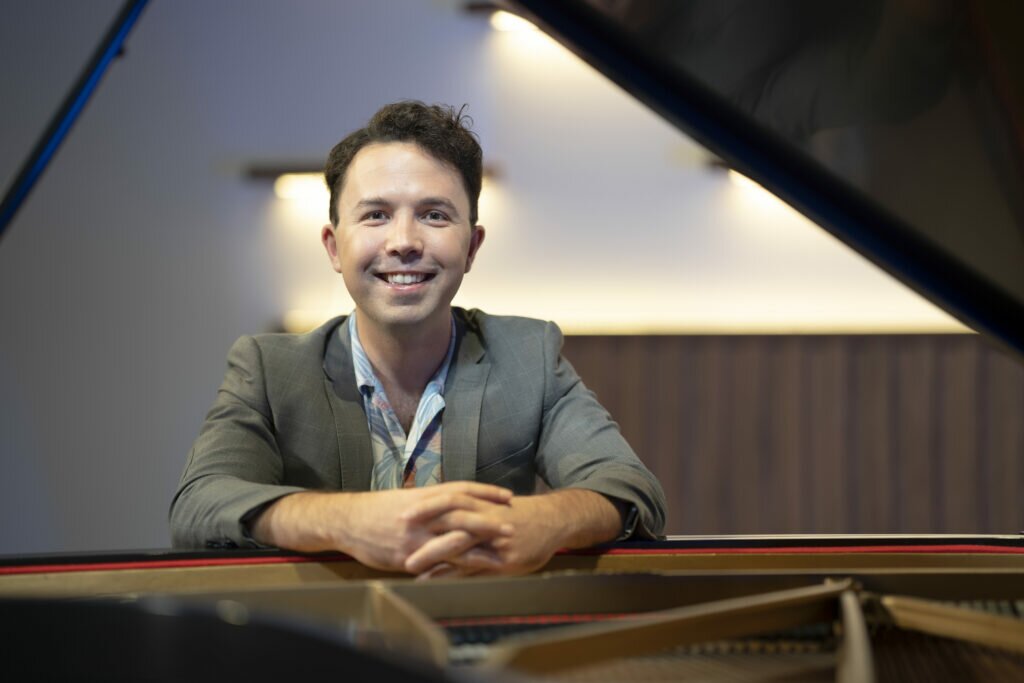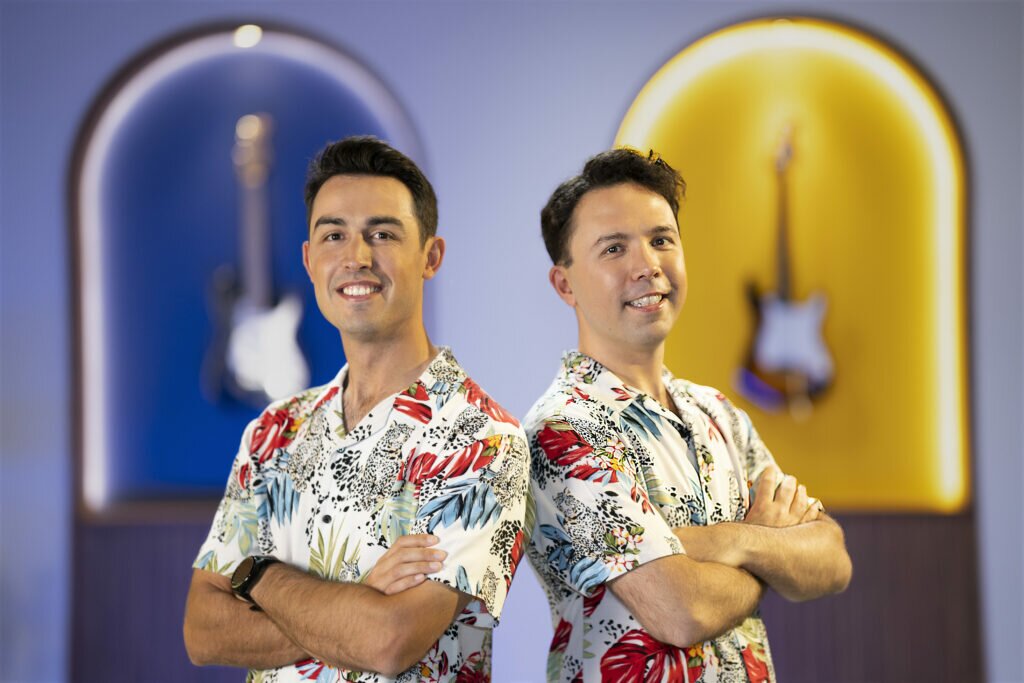At Singapore’s leading music school, there is no one way of teaching and learning. In a society that typically promulgates a singular route of learning music — parents send children for music lessons at a young age, and they sit for music exams to acquire certificates as proof of their talent — Aureus Academy has created a much-needed shift.
Started by Lawrence and Julius Holmefjord-Sarabi in September 2013, the music education centre has redefined the way music is taught and learned in Singapore. Growing from a single school in Delfi Orchard to 25 centres across Singapore and Hong Kong, Aureus has been nothing short of successful.
Lawrence is a celebrated pianist and is the first American to have been accepted into the prestigious Yong Siew Toh Conservatory of Music Schools on a full scholarship. He actively participates in the academy’s classes, and his personal journey with music has shaped the way lessons are taught in Aureus to be centred around individual students. Julius, on the other hand, has had extensive experience running successful start-ups and businesses, and has been instrumental in the company’s expansion and development.
Since co-founding the academy, Lawrence and Julius have broken away from the traditional approach of teaching music to develop passion within students, and have been regularly hiring dedicated teachers to use music to enhance the social and artistic development of children.
The brothers give us a glimpse into the passion behind Aureus and how they have managed to continue growing the academy since its start.
What made you decide on starting Aureus Academy in Singapore?
Lawrence (L): During my time at the Yong Siew Toh Conservatory, I had the privilege of taking part in a number of performances. Members of the public, some of whom were parents with children, would be among the audience members who would come up to me and ask me to be their child’s piano teacher. Back then, I held the assumption that there was already an abundance of good music schools in Singapore. However, those encounters made me realise that there was a gap in the market in terms of both teaching and customer service.
Julius (J): Lawrence and I both went to inquire at existing music schools. After experiencing the customer service for ourselves and learning about their offerings and policies, which included very restrictive student policies such as not being able to reschedule lessons conveniently, we found that there was definitely an opening for us to establish a music academy that not only had more qualified teachers across the board, but also focused on providing a much more customer-centric experience.
What is something interesting that you both learned about music education in Singapore?
J & L: After talking to a number of parents who enquired about lessons at Aureus and then chose us as their music education provider, a common thread was that they did not want their children to have the same gruelling experience of having to do music exams in the way that they had to in their own childhoods. In fact, we feel that more parents today see the value of musical learning as a lifelong experience with a multitude of benefits, rather than taking music lessons just to collect exam certificates.
How have you been able to continue growing Aureus during the pandemic?
J & L: There are several reasons why we were able to expand and launch 5 new centres during the pandemic. Throughout this time, we have stayed true to our commitment of providing the highest levels of customer service and experience. When we had to move all our lessons online, one of our biggest challenges was keeping students engaged and ensuring that they could continue their lessons. Learning music is like going to the gym — pausing for a long stretch of time will likely reverse any progress made.
Part of the challenge of moving to online lessons was the fact that many of our customers at the start of the first circuit breaker did not own instruments at home. As a solution, we called our instrument suppliers and ended up buying out all their cancelled orders, which then enabled us to loan out instruments to our customers for free. In total, we loaned out 1,500 instruments during the pandemic at no charge. We now continue to offer a period of free instrument rental for new students to kick-start their learning journey with us.
What is the biggest challenge you have faced while running Aureus?
J & L: Without a doubt, the biggest challenge we faced was dealing with the unprecedented disruption brought about by the pandemic. The pandemic pushed us to our limits – expanding to more locations, providing comprehensive training for online lesson teaching for all our teachers and reaching out to customers to ensure a smooth transition to online lessons.
Managing this transition to online learning pushed us to be more innovative about learning possibilities. We are really proud of the way our online lessons were executed. To this day, many of our current students continue to do online lessons, and we even have students living overseas who do regular online lessons with Aureus.
We also realised that during the pandemic and lockdown periods, people saw music and music lessons as a great outlet for de-stressing and keeping themselves busy in a more enjoyable manner than academic activities. This is why we continue to think about how we can provide these experiences to students on different platforms across the globe.
How do you think you have redefined music education in Singapore since starting Aureus?
J & L: We think that the most crucial factor is that we have built our entire learning experience around what we believe children want. Everything from facilities, teacher training programmes, and new products are designed to make the whole experience truly immersive and exciting for our students.
In addition to what we have done, we are innovating much more in the future, for example our new learning platform KOKO that is launching this June to complement our lessons and make music learning more accessible to a global audience.
Our brand of music education is appealing to our audiences, and as such, we have seen tremendous growth since our inception.
Lawrence, what is the best part about teaching music as a performer yourself?
L: The most fascinating thing about teaching is breaking down how students learn in such great variety. Learning about the different types of learners is quite powerful, and reinforces how dangerous it is to use one single method to instruct students.
I still believe that customising instruction and lesson plans to every single student is key, and also helps us understand the process of how to break down problems or methods to every single type of student — incredibly complex but necessary! In essence, I see that the best part about teaching music is learning how to learn, and one of the main visions of the company as we develop further is serving learners of all ages and abilities in the best way possible.
Where do you see Aureus in the next five years?
J & L: We are seeing that people across ages are becoming more inclined to learning music as they see the benefits that music learning brings. One of our main focuses is also on creating a hybrid environment of lessons in-person, online, and on an e-learning platform.
We want to build the future format of education, while maintaining the human element in learning music. In fact, this is the core difference between KOKO and other e-learning music platforms, which rely on gamification through AI and remove the human element of teaching in their programmes. KOKO aims to provide the human element of instruction with an engaging programme that enables our students to visualise complex musical concepts easily and ultimately grow into independent learners that do not have to rely on an app or technology to learn a musical piece on their own.
At the same time, we want to be able to give variety to learners who have different musical tastes and interests by letting them learn pieces from their favourite music.
For more information, visit the Aureus Academy website and its music learning app KOKO on the App store.
